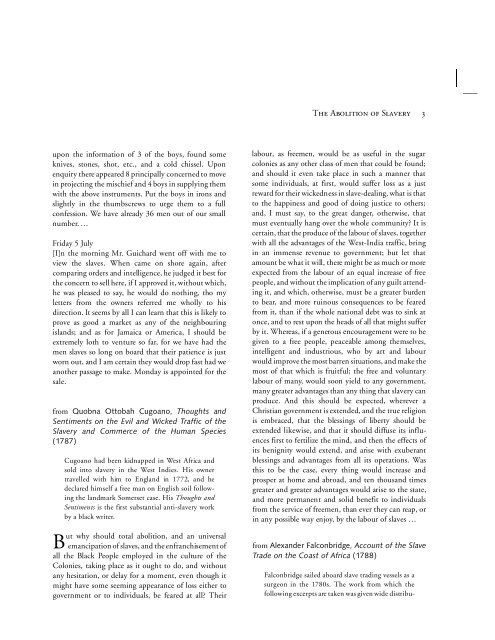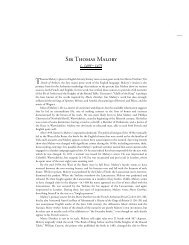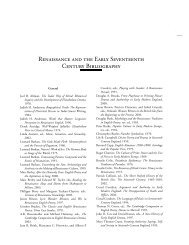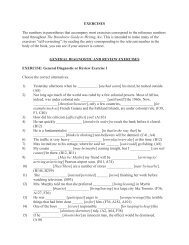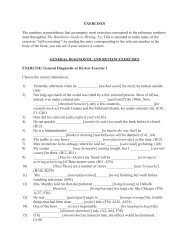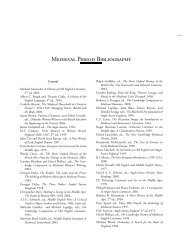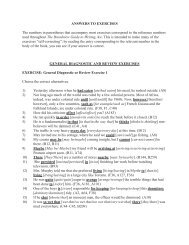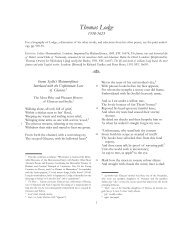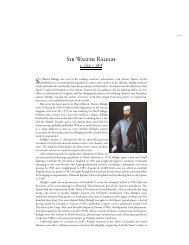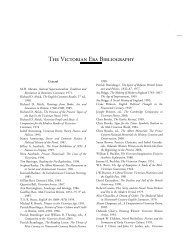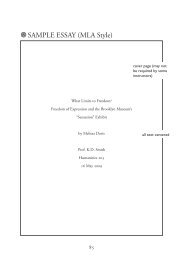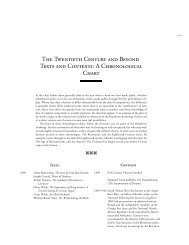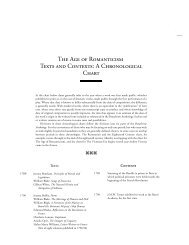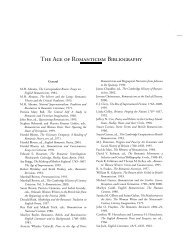Contexts: The Abolition of Slavery - Broadview Press Publisher's Blog
Contexts: The Abolition of Slavery - Broadview Press Publisher's Blog
Contexts: The Abolition of Slavery - Broadview Press Publisher's Blog
Create successful ePaper yourself
Turn your PDF publications into a flip-book with our unique Google optimized e-Paper software.
upon the information <strong>of</strong> 3 <strong>of</strong> the boys, found some<br />
knives, stones, shot, etc., and a cold chissel. Upon<br />
enquiry there appeared 8 principally concerned to move<br />
in projecting the mischief and 4 boys in supplying them<br />
with the above instruments. Put the boys in irons and<br />
slightly in the thumbscrews to urge them to a full<br />
confession. We have already 36 men out <strong>of</strong> our small<br />
number.…<br />
Friday 5 July<br />
[I]n the morning Mr. Guichard went <strong>of</strong>f with me to<br />
view the slaves. When came on shore again, after<br />
comparing orders and intelligence, he judged it best for<br />
the concern to sell here, if I approved it, without which,<br />
he was pleased to say, he would do nothing, tho my<br />
letters from the owners referred me wholly to his<br />
direction. It seems by all I can learn that this is likely to<br />
prove as good a market as any <strong>of</strong> the neighbouring<br />
islands; and as for Jamaica or America, I should be<br />
extremely loth to venture so far, for we have had the<br />
men slaves so long on board that their patience is just<br />
worn out, and I am certain they would drop fast had we<br />
another passage to make. Monday is appointed for the<br />
sale.<br />
from Quobna Ottobah Cugoano, Thoughts and<br />
Sentiments on the Evil and Wicked Traffic <strong>of</strong> the<br />
<strong>Slavery</strong> and Commerce <strong>of</strong> the Human Species<br />
(1787)<br />
Cugoano had been kidnapped in West Africa and<br />
sold into slavery in the West Indies. His owner<br />
travelled with him to England in 1772, and he<br />
declared himself a free man on English soil following<br />
the landmark Somerset case. His Thoughts and<br />
Sentiments is the first substantial anti-slavery work<br />
by a black writer.<br />
But why should total abolition, and an universal<br />
emancipation <strong>of</strong> slaves, and the enfranchisement <strong>of</strong><br />
all the Black People employed in the culture <strong>of</strong> the<br />
Colonies, taking place as it ought to do, and without<br />
any hesitation, or delay for a moment, even though it<br />
might have some seeming appearance <strong>of</strong> loss either to<br />
government or to individuals, be feared at all? <strong>The</strong>ir<br />
<strong>The</strong> <strong>Abolition</strong> <strong>of</strong> <strong>Slavery</strong> 3<br />
labour, as freemen, would be as useful in the sugar<br />
colonies as any other class <strong>of</strong> men that could be found;<br />
and should it even take place in such a manner that<br />
some individuals, at first, would suffer loss as a just<br />
reward for their wickedness in slave-dealing, what is that<br />
to the happiness and good <strong>of</strong> doing justice to others;<br />
and, I must say, to the great danger, otherwise, that<br />
must eventually hang over the whole community? It is<br />
certain, that the produce <strong>of</strong> the labour <strong>of</strong> slaves, together<br />
with all the advantages <strong>of</strong> the West-India traffic, bring<br />
in an immense revenue to government; but let that<br />
amount be what it will, there might be as much or more<br />
expected from the labour <strong>of</strong> an equal increase <strong>of</strong> free<br />
people, and without the implication <strong>of</strong> any guilt attending<br />
it, and which, otherwise, must be a greater burden<br />
to bear, and more ruinous consequences to be feared<br />
from it, than if the whole national debt was to sink at<br />
once, and to rest upon the heads <strong>of</strong> all that might suffer<br />
by it. Whereas, if a generous encouragement were to be<br />
given to a free people, peaceable among themselves,<br />
intelligent and industrious, who by art and labour<br />
would improve the most barren situations, and make the<br />
most <strong>of</strong> that which is fruitful; the free and voluntary<br />
labour <strong>of</strong> many, would soon yield to any government,<br />
many greater advantages than any thing that slavery can<br />
produce. And this should be expected, wherever a<br />
Christian government is extended, and the true religion<br />
is embraced, that the blessings <strong>of</strong> liberty should be<br />
extended likewise, and that it should diffuse its influences<br />
first to fertilize the mind, and then the effects <strong>of</strong><br />
its benignity would extend, and arise with exuberant<br />
blessings and advantages from all its operations. Was<br />
this to be the case, every thing would increase and<br />
prosper at home and abroad, and ten thousand times<br />
greater and greater advantages would arise to the state,<br />
and more permanent and solid benefit to individuals<br />
from the service <strong>of</strong> freemen, than ever they can reap, or<br />
in any possible way enjoy, by the labour <strong>of</strong> slaves …<br />
from Alexander Falconbridge, Account <strong>of</strong> the Slave<br />
Trade on the Coast <strong>of</strong> Africa (1788)<br />
Falconbridge sailed aboard slave trading vessels as a<br />
surgeon in the 1780s. <strong>The</strong> work from which the<br />
following excerpts are taken was given wide distribu-


